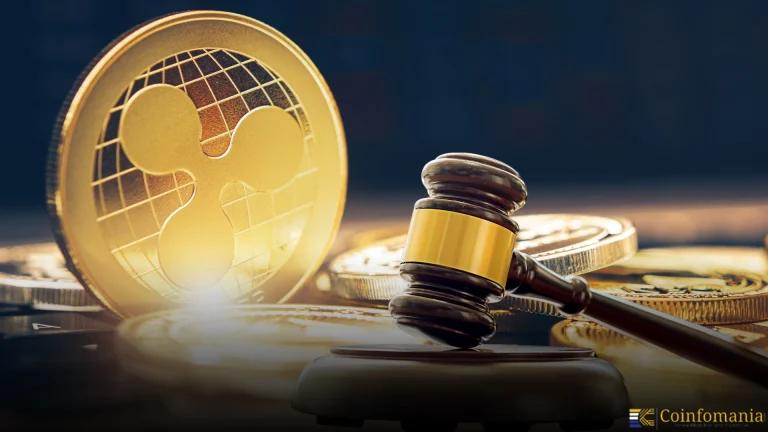Cryptocurrency Regulations in Argentina
With regards to cryptocurrency, Argentina’s approach is best described as cautiously open. Although Bitcoin is not legal tender, it is perfectly legal to use, trade, and hold Bitcoin and other crypto assets. Millions of Argentines have embraced crypto to save, send remittances and pay for everyday transactions out of desperation, largely driven by extreme inflation, […]

With regards to cryptocurrency, Argentina’s approach is best described as cautiously open. Although Bitcoin is not legal tender, it is perfectly legal to use, trade, and hold Bitcoin and other crypto assets. Millions of Argentines have embraced crypto to save, send remittances and pay for everyday transactions out of desperation, largely driven by extreme inflation, currency controls and a weak peso.
As it stands, Argentina’s crypto laws are important for investors, businesses, and users to understand. Over the last few years, the regulatory framework has also become more structured and key institutions have clearer oversight. Each of the four institutions involved in the definition of arbitrage with crypto, is the Central Bank (BCRA), the National Securities Commission (CNV), the Financial Intelligence Unit (UIF) and the Tax Authority (ARCA).
Those in the market in Argentina must keep up with developments so that they remain both compliant and competitive in one of the most advanced regulatory environments in the region for digital assets.
Historical Context
Initially, in Argentina, they took a hands-off approach towards cryptocurrency. In 2014, the Central Bank warned about the risk but did not ban crypto. The Financial Intelligence Unit (UIF) instituted the mandate to report crypto transactions for anti-money laundering purposes around the same time, indicating that authorities were keeping watch but staying out of the crypto crime ring.
And between 2019 and 2022, regulators enforced tightening restrictions, such as banning crypto trading for banks and credit card purchases of crypto, during periods of economic crisis and an IMF deal. But they also have ventured into innovation, setting up a blockchain committee and a fintech innovation hub.
Until late 2023, Argentina changed its position again. The new Milei administration’s decree gave a pro-crypto signal when it confirmed the legal validity of crypto contracts. At the same time as this move, CNV received more structured oversight through CNV regulation, which suggests a shift from prohibition to formalization.
Regulatory Framework
Regulatory Authorities:
The Central Bank (BCRA)enjoys currency control, prohibits offering crypto‐related services via banks and payment apps, and manages peso stability.
Lead crypto regulator: CNV (National Securities Commission), supervising exchanges, brokers and service providers active in the crypto space since 2024.
Financial Intelligence Unit (UIF): It enforces AML/CFT laws and forces crypto firms to report any suspicious activity.
ARCA (ex AFIP): handles taxation of crypto gains, holdings and services.
Licensing and Registration:
As per Law 27,739, passed in 2024, the CNV was endowed with the faculty to oversee virtual asset service obligations (VASPs). Then, it launched a mandatory VASP registry which requires exchanges, brokers and custodians to register, or they risk being operationally banned.
AML & KYC:
Now, registered VASPs are obligated subjects under the AML law. They are forced to have full KYC procedures, and transaction monitoring, and they report to UIF. In addition, these obligations align Argentina with FATF standards.
Taxation:
Individuals pay 15% as capital income while corporate income applies to businesses. The crypto itself is not subject to Personal Assets Tax, but holdings above a threshold are taxed, and then there is VAT on service fees (of which there is very little) as well. Foreign holdings are also monitored by ARCA and crypto accounts are mandated to report.
ICOs & Other Assets:
ICOs and tokens may constitute securities if considered investment instruments. The CNV checks these on a case-by-case basis and has warned some may have to formally register as regulated financial markets.
Argentina’s Crypto Policies
Though it is not legal tender, crypto can be used for private transactions and contracts in Argentina. That decree from 2023 further validated the legal validity of Bitcoin or stablecoin contracts by reaffirming civil law principles of freedom of agreement.
Mining is legal and for the most part, happens without regulation. They must comply with standard rules (such as taxes and equipment price imports), but there are zero national crypto-specific limitations for them. Negative policy actions have led to the emergence of proposals to incentivize mining through tax breaks.
Blockchain innovation is also of interest to the government. Being the first, Buenos Aires has launched blockchain-based digital IDs for its residents and is operating Ethereum validator nodes for Public services usage. Despite the current economic woes, these projects have a pro-tech bent.
Non-compliance with crypto laws can result in fines, loss of registration or even court orders to ban operations. The UIF can follow AML violations, ARCA and the CNV can pursue tax fraud and the CNV administers registration and consumer protection rules.
Argentina’s crypto policy tends more to support legal clarity, the use of private crypto ownership, and crypto innovation, while also having the aim of avoiding financial system risk.
Argentina’s Approach to Crypto Innovation
Argentina has approached the idea of crypto innovation cautiously. The CNV launched an innovation hub in 2022 to allow for discussion with fintech and crypto startups. This forum never became a formal regulatory sandbox, and yet it did help form the 2024 VASP regulations and permitted input into rulemaking from the industry.
Businesses are using crypto widely. Local companies like Ripio, Lemon Cash, and Buenbit offer crypto payment cards, savings products, and stablecoin services. In fact, some mainstream giants such as Mercado Libre have a crypto investment option.
Not only does Argentina have impressive blockchain development, but RSK and pilot programs like decentralized ID systems in Buenos Aires are some examples. These demonstrate how innovation is being pushed by public and private actors even in the times of regulatory caution.
In terms of strategy, the government’s intention is simultaneously to encourage growth within a legal framework in order to ensure that Argentina becomes a regional leader in crypto while keeping an eye on the industry.
Notable Challenges and Issues
There are some problems regarding the regulation of crypto in Argentina. Instead, there was historically a regulatory patchwork where banks could not offer crypto but fintechs could. However, even today there may be a fragmentation of coordination between CNV, BCRA, UIF, and ARCA.
Enforcement remains difficult. It is difficult to ensure registration, KYC and tax compliance with so many Argentines using foreign or peer-to-peer platforms. Although the CNV has the power to block dubious exchanges, its implementation is complex.
While there is a split in public opinion on crypto, there is a concern (or cynicism) that the sector is primarily full of scams and speculation given scandals like the ‘Lioncoin’ controversy from 2023.
Finally, the practical difficulties of being regulated and complying with regulator requirements arise because of infrastructure gaps (e.g. poor banking integration and the presence of informal OTC markets). For a trusting crypto ecosystem to be created, these gaps will need to be closed.
Trends in Key Regulations and Outlook to the Future
With over two decades of development, Argentina has been on the path to a mature crypto regulatory framework, since 2024. Rather, it is implementing the CNV’s VASP registry and the operating rules (Resolution 1058/2024) in detail, with deadlines for compliance set in mid-2025.
Milei’s administration supports financial liberalization, and more crypto-friendly reforms (for example, allowing banks to get back into the scene) are possible when regulations settle. As for stablecoins, they remain the most popular asset on the platform, and they may eventually come under more formal regulation.
Argentina internationally might follow or align with international conventions like FATF travel rules or IMF regulations even when struggling with economic uncertainty to achieve financial stability.
If Argentina sufficiently strikes a balance between oversight and openness, it could position itself as the crypto hub of the region. This includes crypto licensing regimes, mining authority and policy, and public sector blockchain applications.
Conclusion
Argentina has come out of regulatory ambiguity to a more structured yet compliance-driven framework yet permitting the use of crypto and innovation. Crypto is legal, enormously popular, and more controlled—particularly for crypto service providers.
Staying up to date is important as the new rules get implemented in 2025 for investors, businesses, and users. While Argentina’s crypto landscape is evolving and presents opportunities, it is essential to have a good understanding of obligations resulting from its legal framework.
And as the reform continues, the country may become an example of crypto integration in Latin America.
Frequently Asked Questions (FAQs)
1. Is Bitcoin legal in Argentina?
Bitcoin is legal tender to buy, sell and own in Argentina but not legal tender.
2. Can businesses in Argentina accept crypto payments?
Absolutely, you can have crypto in contracts and transactions as long as you both agree.
3. Is crypto regulated in Argentina?
Argentina has developed a framework regulating both exchanges and service providers and they should register with the CNV.
4. Is crypto taxed in Argentina?
Whether you know it or not, crypto capital gains are taxable and crypto holdings will be subject to reporting on the type of wealth tax you pay.
5. In what manner can the foreign exchanges work with Argentina?
At the moment, they only have to register at CNV, otherwise, they may be blocked from operating in the country.
6. Can one mine crypto in Argentina?
Mining is legal at the moment and there are no specific national regulations in place regarding it.
7. Do crypto exchanges implement KYC?
For sure, all registered exchanges are under AML/KYC laws with UIF oversight.
8. Can contracts be made in bitcoin or bitcoin stablecoins?
A 2023 decree did confirm that crypto-denominated contracts are legally enforceable.
9. What crypto laws are there and what penalties exist for those who do not comply with them?
Unregistered or non-compliant crypto businesses can be fined, or given operational bans or court orders.
10. Is Argentina beginning to launch a Central Bank Digital Currency (CBDC)?
There are no official plans whatsoever to launch a CBDC but, as mentioned, the government seems to favour market-driven solutions such as dollarization.
Follow us on Google News
Get the latest crypto insights and updates.
Related Posts

Ripple Highlights Custody as Key to $18.9T Tokenized Assets by 2033
Shweta Chakrawarty
Author

Hong Kong SFC Issues New Custody Rules for Crypto Platforms
Shweta Chakrawarty
Author

South Korea and Vietnam eye $150B trade despite Trump tariff
Shweta Chakrawarty
Author